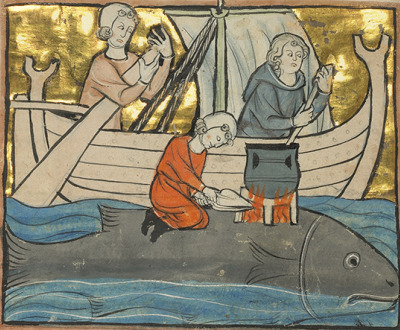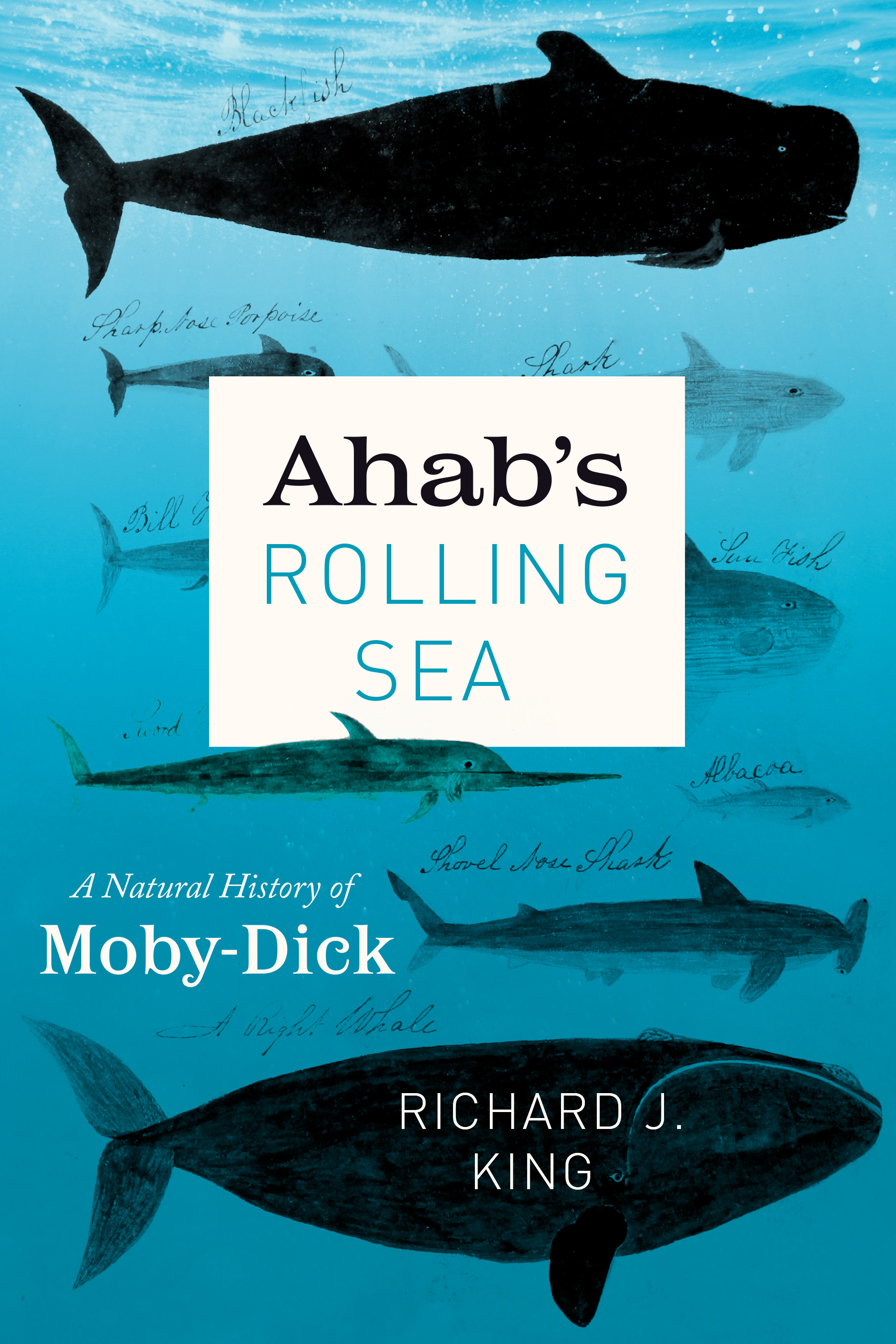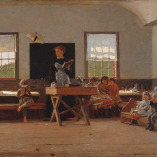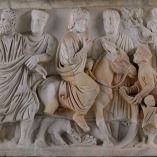
A Fisherman on the Back of a Whale, c. 1277. The J. Paul Getty Museum, Los Angeles. Digital image courtesy of the Getty’s Open Content Program.
“I, like so many other readers of Moby-Dick,” scholar and sailor Richard J. King writes in Ahab’s Rolling Sea: A Natural History of Moby-Dick, “perceive the world’s oceans to be vulnerable, fragile, and in need of our stewardship. We have overfished the water, overdeveloped coastal habitats, and rocketed the rate of the introduction of marine invasive species. We have polluted the sea with oil spills, chemical runoff, and pervasive plastics. The amount of carbon dioxide in the atmosphere has increased by over 70 percent since Melville’s years at sea, and is still rising…We hurl harpoons at a faceless ocean, slowly killing ourselves as we drag down entire ecosystems of life along with us. Because of sea level rise and the ungraspable phantom of melting polar and glacial ice, Melville sailed over a Pacific Ocean in the 1840s that was likely at least eight inches lower than it is today.”
And yet, he adds, we still “continue to revere our twenty-first-century ocean in a similar way as did Noah, Jonah, and Ahab. We still envision the sea, even with all our technological advancements and scientific knowledge, as relentless and indifferent and immortal and sublime and eager to lure us in with a trace of sympathy and kindness then kick our ass and not even look back.”
In this episode of The World in Time, Lewis H. Lapham and Richard J. King discuss Melville’s ocean, and how its waves continue to crash into ours.
Lewis H. Lapham speaks with Richard J. King, author of Ahab’s Rolling Sea: A Natural History of Moby-Dick.
Thanks to our generous donors. Lead support for this podcast has been provided by Elizabeth “Lisette” Prince. Additional support was provided by James J. “Jimmy” Coleman Jr.






